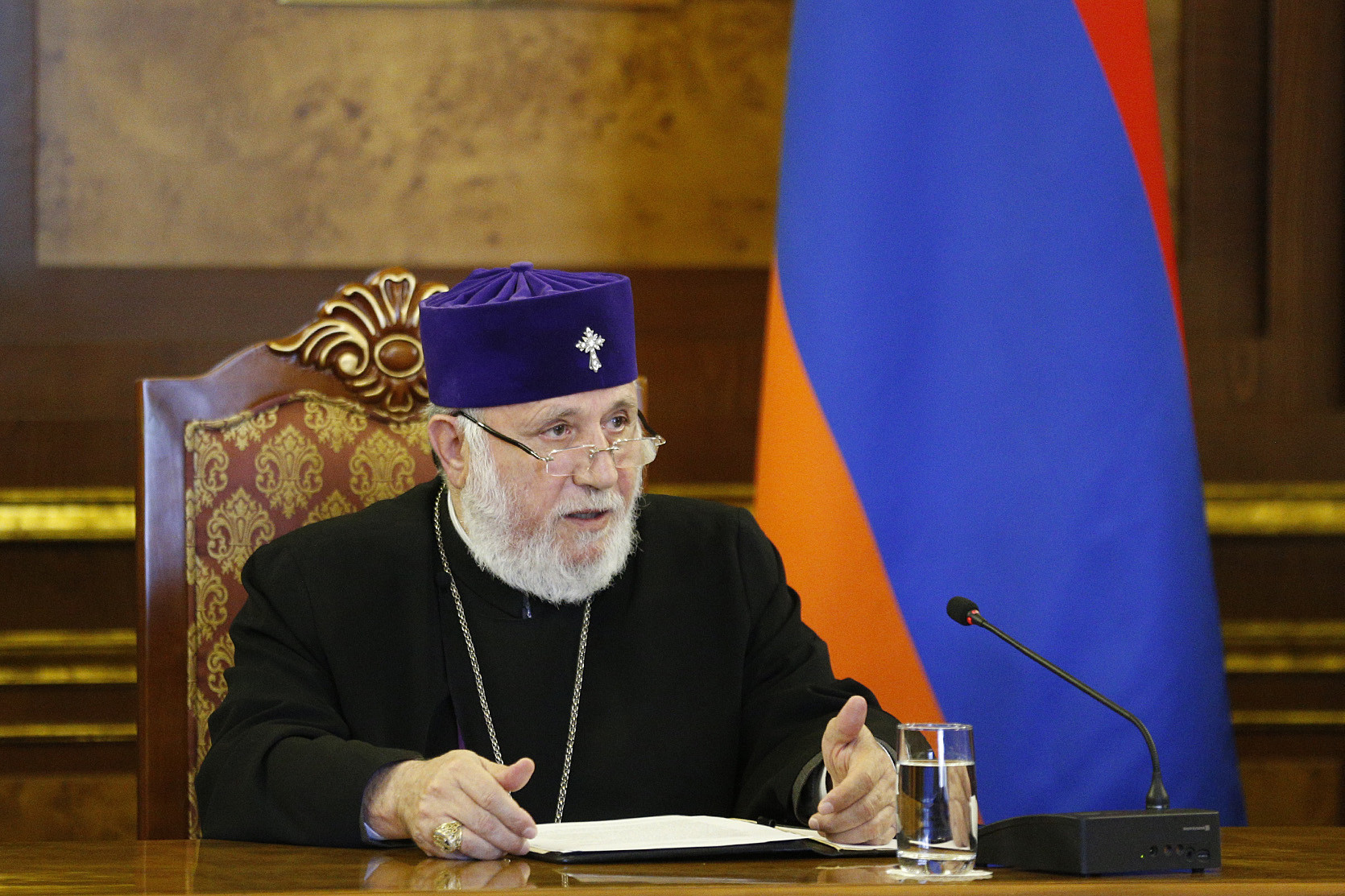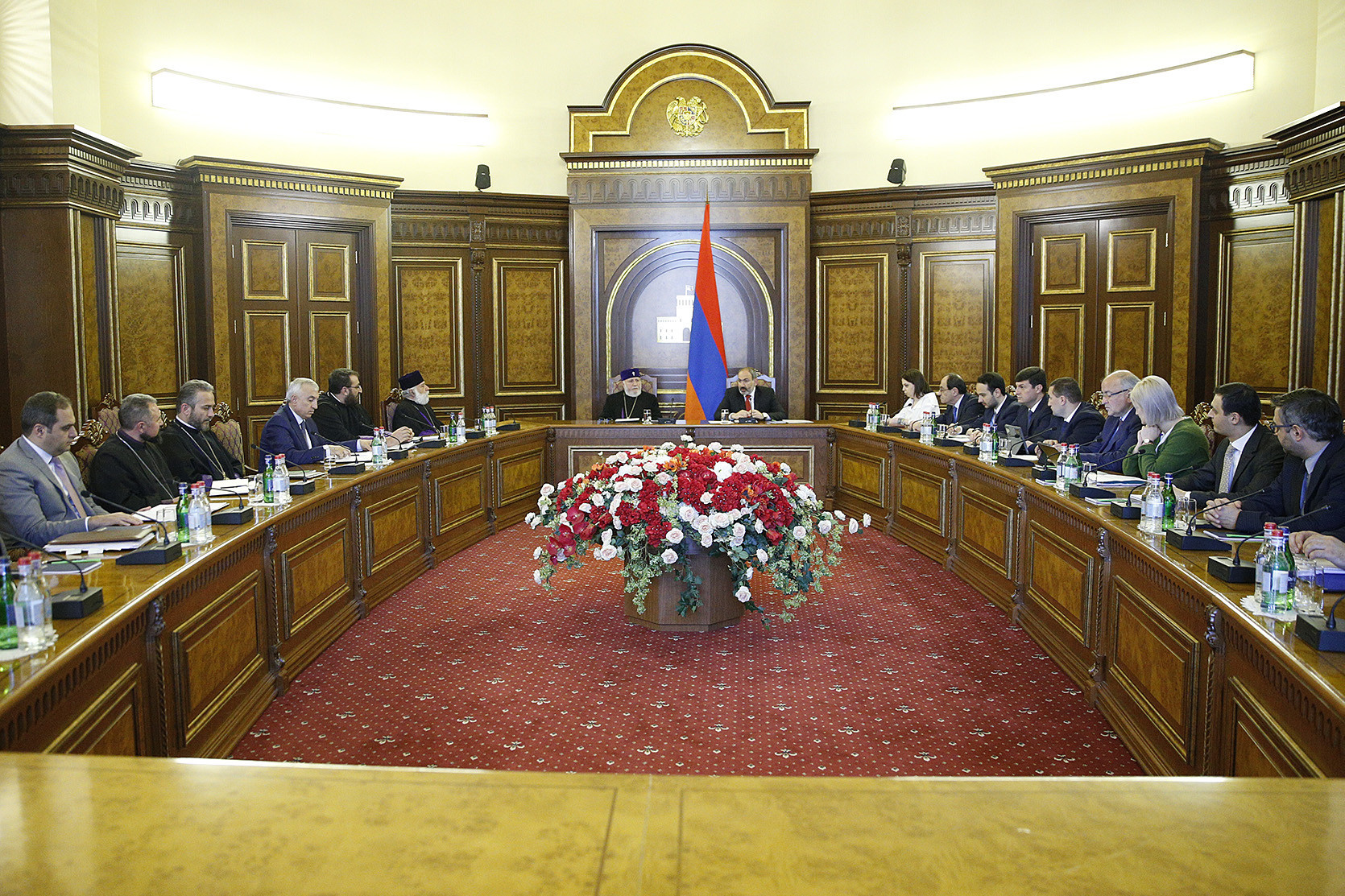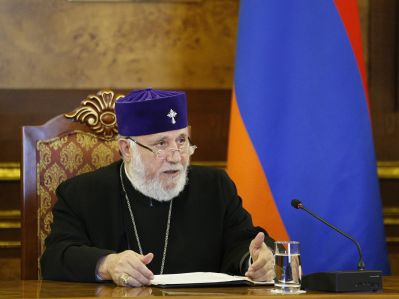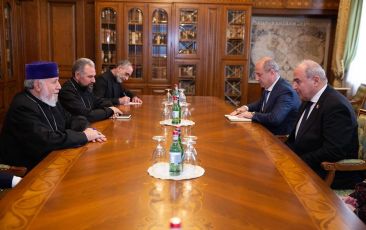Church-State Relations Group Began its Work
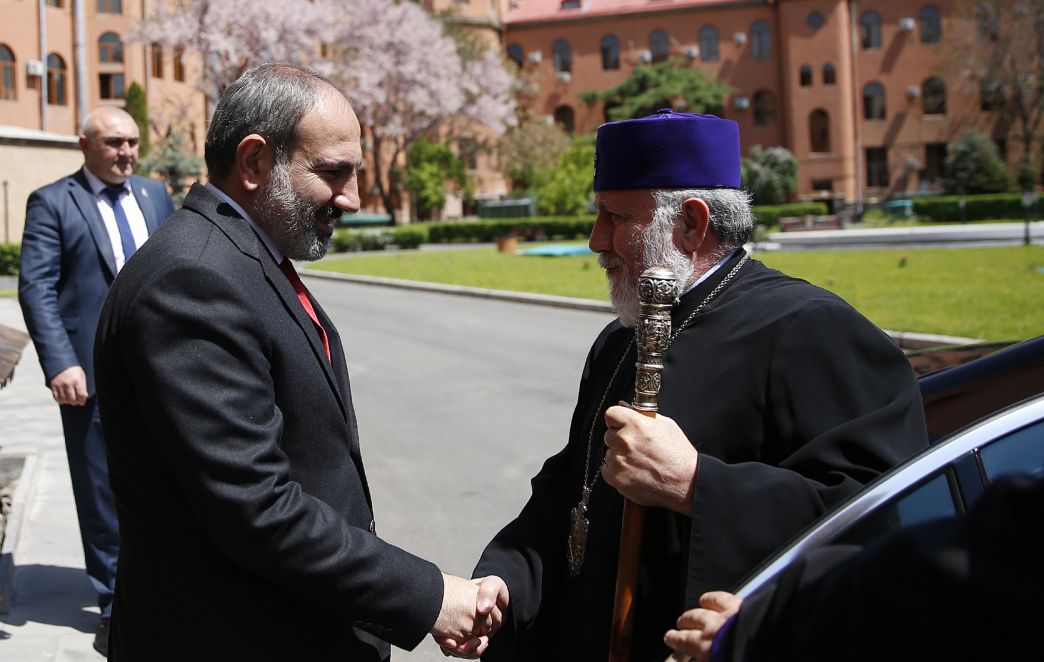 03.05.2019
03.05.2019
On May 3, the first meeting of the working group of the affairs related to the relations between the Republic of Armenia and the Armenian Apostolic Holy Church was held.
The first session was chaired by His Holiness Karekin II, Supreme Patriarch and Catholicos of All Armenians and Mr. Nikol Pashinyan, Prime Minister of the Republic of Armenia.
During the session the Catholicos of All Armenians stated his remarks to the attendees and members of the working group.
REMARKS OF HIS HOLINESS KAREKIN II, SUPREME PATRIARCH AND CATHOLICOS OF ALL ARMENIANS
Your Excellency, Prime Minister of the Republic of Armenia,
Distinguished officials and attendees,
We convey our greetings and blessings to you. We express our joy on the occasion of the convocation of the first meeting of the working group for the development of the Church-State relations.
This new format of the regulation of the relations between the Motherland and our Church is a good opportunity to discuss issues of mutual interest and to seek for their solutions for the sake of our country and people.
Our history is the best evidence that the Church has made an invaluable contribution to the strengthening and consolidation of the Armenian state and also through the support of the state has brought its spiritual service to our people.
In the absence of the statehood, the Church continued to take care and lead our people, keeping the consciousness of restoring the independent statehood awake and investing in the reconstruction of the Armenian statehood.
The position of the Armenian Church to keep the Armenian state unshakable and to be guided by the state is best reflected in the well-known formulation of St. Sahak Partev Patriarch, who throughout the history of the Armenian Church was pivotal in the activities of our patriarchs and clergymen.
The mission of our Church has transformed the life of our people with significant spiritual, educational, scientific and cultural accomplishments.
The cooperation between the state and the Church is of great importance, dictated by our national interests and priorities and the imperative to maintain our national identity, spirit and description.
We extend our gratitude to the Lord that during the years of independence significant steps have been taken towards the regulation of our state and Church relations. Nevertheless, there are many important issues that need to be solved. We hope that within the framework of this working group, effective solutions will be found in the national life for the uncompromising implementation of the Church's mission.
During the discussions, we think, there are some baseline realities and observations that should be taken into account, which we present below:
1.The Constitution of the Republic of Armenia recognizes the Armenian Apostolic Church as the National Church, taking into account the exclusive mission of the Church in the life of our people. At the same time, the Constitution guarantees the freedom of religious organizations. The provision of special status of the Armenian Apostolic Church is sometimes deliberately presented as manifestation of discrimination, which is definitely partial appraisal and does not coincide with international experience and accepted standards. The study and practice of religious laws of different countries, including European states, confirm that the special status of a religious institution, which played a major role in the history of the country and nation, does not imply discrimination against religious organizations.
2.The constitutional principle of the separation from religious organizations is sometimes misunderstood in terms of limiting the mission of the Armenian Church. This orientation is attempted to justify referring to the principle of the state secularism. Meanwhile, the concept of "secular state" does not have an anti-church or anti-sectarian element and does not exclude cooperation between the state and the Church and does not impede its implementation in various spheres of life, especially in Armenia which has a rich Christian heritage and ancient traditions.
3.In the legislative aspects of church issues, should be also taken into account the material and human damages and losses caused to the Armenian Apostolic Church as a result of persecutions against the Church during the Soviet era and the Armenian Genocide, including the destruction of monasteries, churches, church infrastructures and the capture of property and possessions. All this, as well as the reality of actual non-existence of the church-state relations in that era did not allow the restoration of the losses. In this context, the state's support is important, so that the Church can restore the necessary conditions and opportunities for its mission in the Homeland and the Diaspora.
There are positive expectations regarding this group's work both within the clergy and the faithful.
We are confident that the expansion of Church-state cooperation should promote the strengthening of national and spiritual life of our people, as well as the formation of a conscious and law-abiding citizen, the strength of families, the brightness of the Church and the power of the state.
Our prayer is that the Lord grant prosperity to our native country and will exert every effort of our people and our local authorities for the sake of our homeland, the progress of our national life and the bright future.
